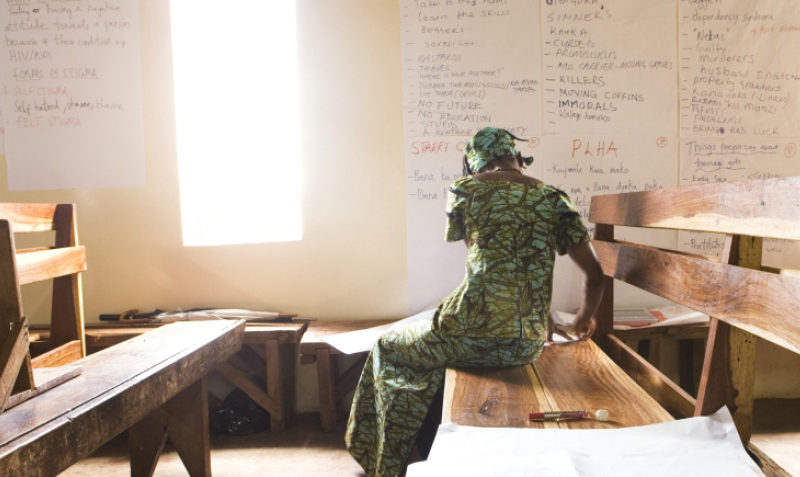In a crisis of accountability what is next for UNAIDS?
 © Nell Freeman for Frontline AIDS
© Nell Freeman for Frontline AIDS
I am calling on UNAIDS to ensure women can work within the agency without fear of sexual harassment and misconduct.
Christine Stegling is the executive director of the International HIV/AIDS Alliance.
Like many others, I am horrified by UNAIDS’ inadequate response to multiple alleged human rights violations experienced by women in its employment.
These alleged violations and the lack of a strong response by UNAIDS executive director Michel Sidibé and the rest of the organisation’s leadership is even more upsetting for an agency that stresses the specific vulnerabilities of women to HIV infection. When the scandal first broke, I urged Michel to take swift action to get UNAIDS in order and rebuild trust and confidence in the organisation. Clearly this has not happened. Now, as the leader of an Alliance of civil society organisations working together to end AIDS, I am voicing my concerns about UNAIDS’ ability to play a key coordinating role in the HIV response.
As civil society we have had a love–hate relationship with UNAIDS over many years. Many fought for a UN agency that is different, that creates a space for activists, communities and those most affected by HIV to work in meaningful partnership with governments, donors and UN agencies to address the multiple facets of HIV – which we all know need our collective energy, wisdom, knowledge and passion.
A political moment in the HIV response
We are at a particular political moment in the HIV response with many of us fearful that it is no longer high on the global health agenda, as many governments integrate HIV into a wider discourse around health and the sustainable development goals (SDGs). It is exactly at this key moment that we need a well functioning, outspoken, intelligent, inclusive UN agency that gives voice to the fact that AIDS is not over and that we need a well-resourced response to ‘end AIDS’.
There is no other space quite like UNAIDS in the UN, where civil society sits at the table, contributes and co-creates, asks difficult questions and demands attention, rather than being just an invited guest. In many ways, civil society has been instrumental in creating a UN agency that looks and feels different.
Yet I am not sure that UNAIDS is currently that brave and strategic agency that many of us have supported over the past twenty-odd years. But perhaps it is because of this history that many of us (and I acknowledge that many others have spoken out) have remained publicly quiet, while feeling increasingly uncomfortable with what looks like a case of inadequate handling of multiple alleged human rights violations experienced by women in UNAIDS’ employment.
Time to get to the truth
UNAIDS consistently speaks out about the link between gender-based violence and women being unable to protect themselves from HIV infection. Having spent a good part of my life in Southern Africa I have firsthand experience of how gender inequality and patriarchy directly link to HIV infection. So why when we know all of this and when we have an agency that was set up to specifically address all the facets of HIV, including leading on a human-rights-based response, does this agency not show greater leadership when internal reports suggest that women within their own institution are exposed to violence and predatory behavior?
I am baffled! And I cannot sit in silence on the sidelines and watch UNAIDS self-destruct. Part of being a responsible colleague and friend is being prepared to highlight serious issues and have honest, sometimes difficult, conversations. This is why I am calling on UNAIDS to deal with the problem and convince all of us – supporters, friends and colleagues – that it is doing the best it can to ensure that women can work within the agency without fear of sexual harassment and misconduct.
As Maya Angelou so rightly noted: “There is a world of difference between truth and facts. Facts can obscure the truth.” It is time to get to the truth, to ensure the leadership of UNAIDS does the right thing to ensure all women that work for the agency are safe and respected. If that means a change in leadership – so be it. What is more important now is that we have a credible agency that carries the global HIV movement into the next decade.
This article was written as the International HIV/AIDS Alliance, before we changed our name to Frontline AIDS.
Tags
Christine SteglingUNAIDS



